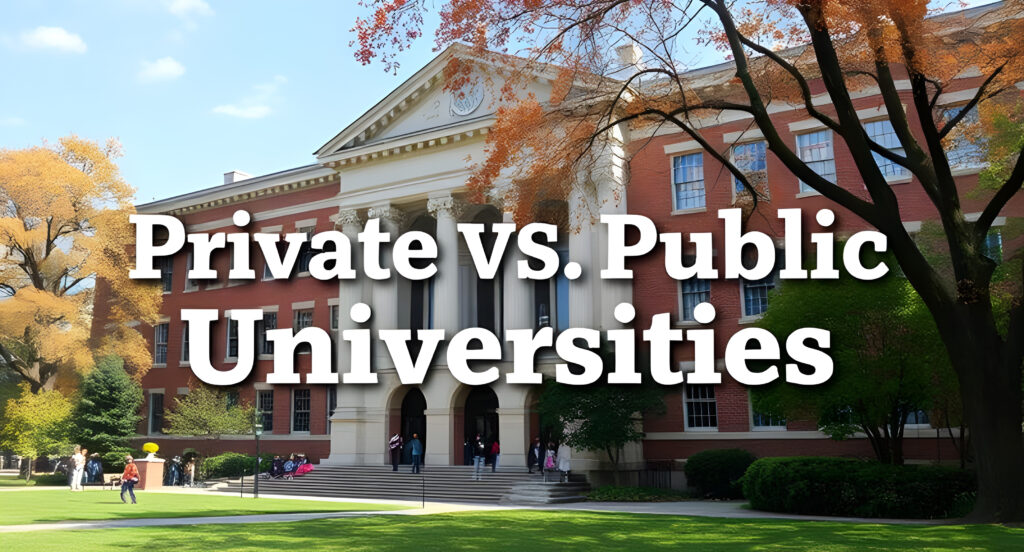Private vs Public Universities: Which One Is Best for Your Career?

Introduction
Choosing the right university is one of the most crucial decisions in shaping your career. Whether you opt for a public or private institution, both come with their own sets of advantages and challenges. But which one is best for you? This guide breaks down the key differences, helping you make an informed choice based on factors like cost, quality of education, job opportunities, and campus life.Also Read our Blog On How to Get into Your Dream Univerisity.
Understanding Private and Public Universities
Before diving into specifics, it’s important to understand what differentiates public and private universities.
Public universities are funded by the government, making them more affordable for in-state students. They often have larger student populations and diverse academic programs.
Private universities on the other hand, rely on tuition fees, endowments, and donations. They usually have smaller student bodies and more personalized educational experiences.
Cost of Education
Private universities: Typically charge higher tuition fees, ranging from $30,000 to $60,000 per year.
Public universities: More affordable, especially for in-state students, with tuition costs ranging from $10,000 to $25,000 per year.
Financial aid: Scholarships and grants are available for both, but private universities often offer more generous merit-based scholarships.
Class Size and Student-to-Faculty Ratio
Private universities boast smaller class sizes, allowing for personalized attention.
Public universities tend to have larger lectures, which can be overwhelming but also offer diverse perspectives.
Quality of Education
Private institutions often attract highly qualified faculty with strong research backgrounds.
Public universities offer diverse course selections and well-funded research programs.
Campus Life and Extracurricular Activities
Public universities provide a more vibrant campus life, with more student organizations and sports activities.
Private universities focus on close-knit communities, fostering strong interpersonal relationships.
Career Opportunities and Job Placement
Private universities often have strong alumni networks, leading to better job placements.
Public universities offer large career fairs and employer connections but can have high competition among students.
Research and Innovation
Public universities receive more government research funding, allowing for larger-scale projects.
Private universities focus on specific research areas, with strong industry partnerships.
Diversity and Inclusion
Public universities have higher cultural diversity, attracting students from various backgrounds.
Private universities emphasize selective admissions, often leading to smaller, more homogeneous student populations
Pros and Cons of Public Universities
Pros:
More affordable tuition
Wide variety of academic programs
Large, diverse student body
Cons:
Larger class sizes
Less personalized attention
High competition for resources
Pros and Cons of Public Universities
Pros:
Small class sizes and individualized education
Strong alumni networks
Better funding for scholarships
Cons:
Higher tuition costs
Limited program variety
Less cultural diversity
Conclusion
Both private and public universities offer unique advantages. Your choice should depend on your career goals, budget, and preferred learning environment. If affordability and variety matter more, a public university may be ideal. If personalized attention and strong networking opportunities are your priority, a private university could be the right fit.
